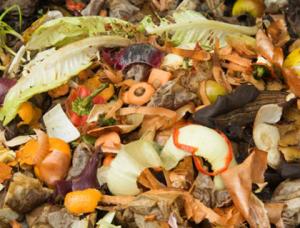UK-based Centre for Process Innovation (CPI) is leading a European three-year collaboration called PlasCarb that aims to transform food waste into a sustainable source of graphene and renewable hydrogen. The project, will focus on transforming biogas generated by the anaerobic digestion of food waste using an innovative low energy microwave plasma process to split biogas (methane and carbon dioxide) into said products.

The CPI will be responsible for the technical aspects in the separation of biogas into methane and carbon dioxide, and separating of the graphitic carbon produced from the renewable hydrogen. The CPI's infrastructure allows for the microwave plasma process to be trialled and optimised at pilot production scale, with a future technology roadmap devised for commercial scale manufacturing.
The intention to use food waste to sustainably produce graphene and renewable hydrogen tackles the food waste problem on top of the obvious benefits of receiving those materials.
PlasCarb will be co-funded under the European Union’s Seventh Framework Programme (FP7) and is meant to further reinforce Europe’s leading position in environmental technologies and innovation in high value Carbon. The consortium is composed of eight partners led by CPI from five European countries.

